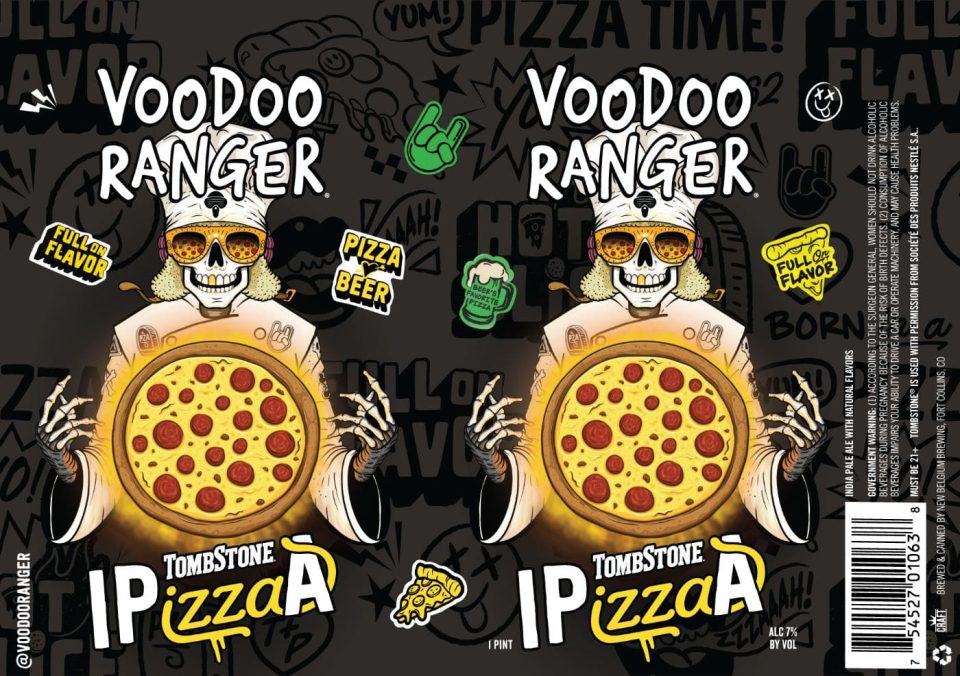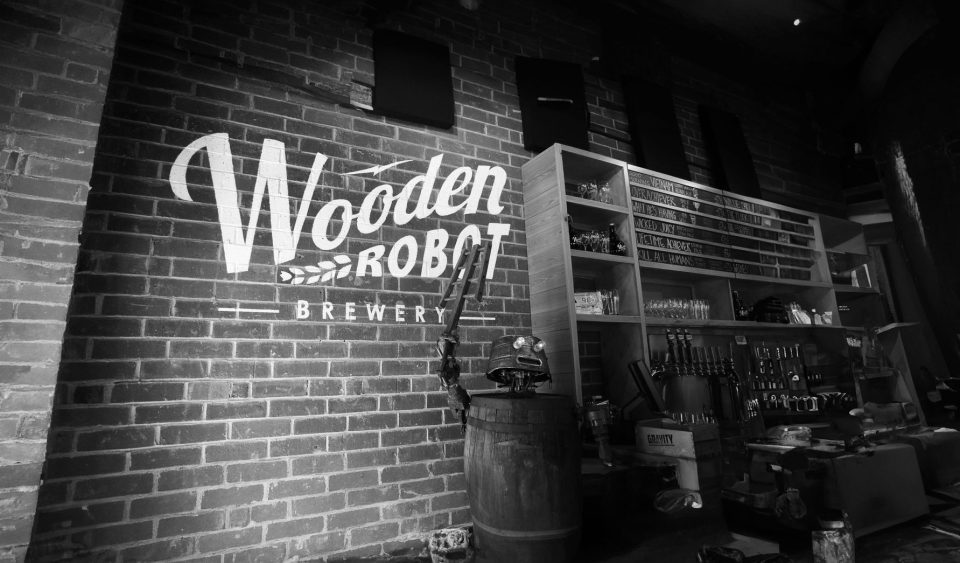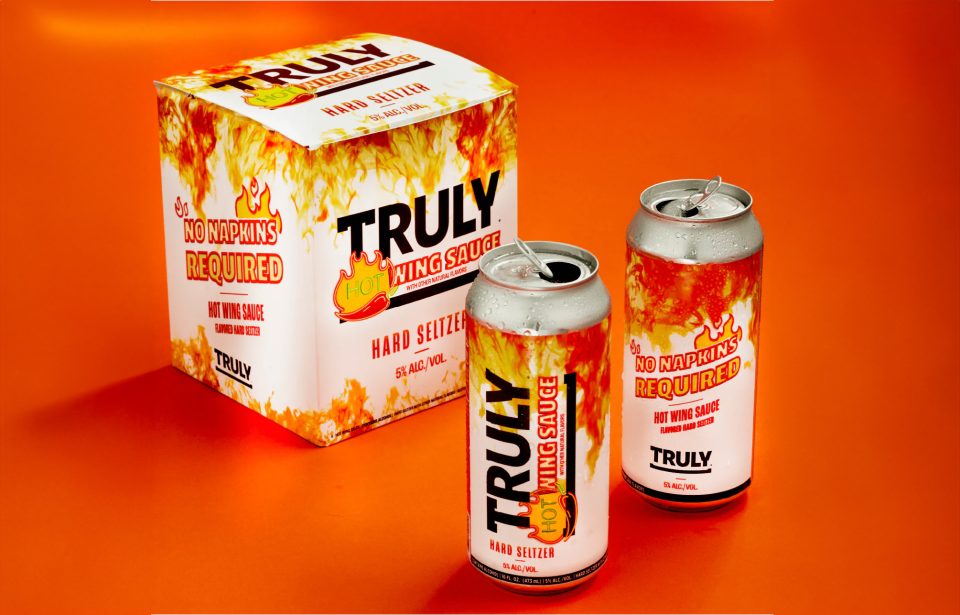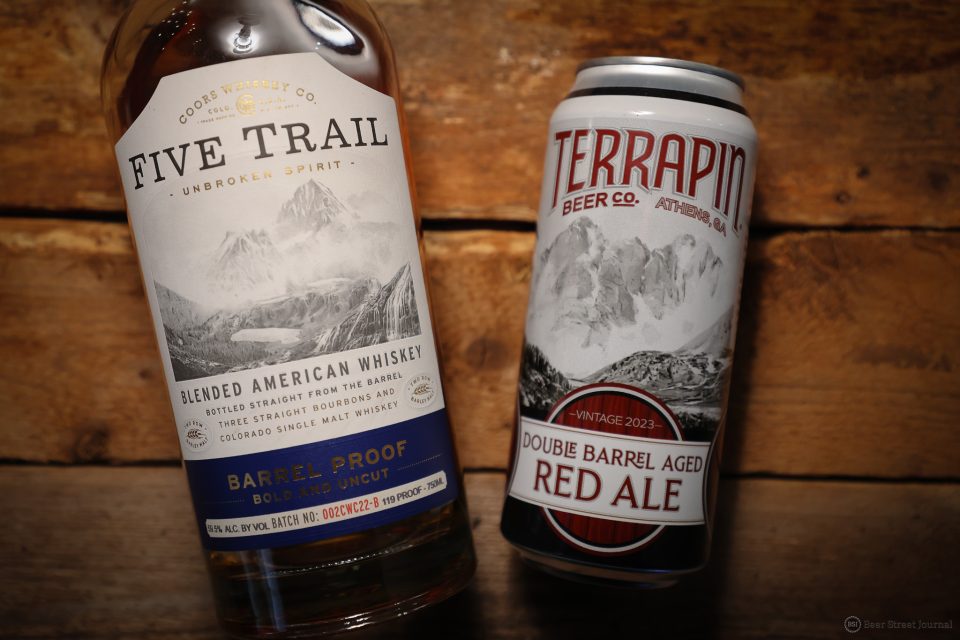What started as a class action suit against Blue Moon over the word “craft” has ended with some unintended results.
Earlier this year, a Blue Moon drinker Evan Parent, filed a lawsuit against Blue Moon Brewing, a division of MillerCoors. The suit contends that Blue Moon’s packaging, and the fact that the beer is placed among small brewery releases in the grocery store, has misled him into thinking he was buying a craft beer.
A lot of this is centered around Blue Moon’s marketing phrase “Artfully Crafted” while masking who truly owns the brand. Through this misrepresentation, Blue Moon/MillerCoors justifies charging up to 50% more for the ‘craft’ product, inline with the small brewery (aka true craft) beers.
Judge Gonzalo Curiel of the U.S. District Court in a tentative ruling is dismissing the claim that the label on Blue Moon is misleading the consumers into thinking that the beer is a craft beer, owned by a smaller brewery and not MillerCoors.
As we mentioned in a previous article regarding Blue Moon’s response the class action suit – the definition of a craft beer is not a legal one, but one defined by the not-for-profit Brewer’s Association. That makes it hard to enforce in a court of law.
Ultimately, this de facto court decision resulting from the suit, intended to take a shot at Big Beer trying to sell their products as craft, didn’t have the desired result. “Artfully crafted” is NOT misleading to the drinking public according to Judge Curiel. If a big brewery like AB InBev or MillerCoors attempts to call Bud Light Lime craft beer on a label, or in marketing in the future, a lawsuit could be in order, but even that’s not clear.
What this does do, is allow Big Beer to set up fictitious trade names and bottle the beer with those fictitious trade names. (Example: Blue Moon Brewing is Miller, Shock Top Brewing Is AB InBev, Landshark Brewing, AB InBev). In this case, the MillerCoors site mentioned Blue Moon, but the Blue Moon site doesn’t mention Miller. That is enough to satisfy the lawsuit claims in this instance. The court has given Big Beer a blueprint to fool the consumer:
- Make yourself a beer that you want to pass as craft.
- Set up a “crafty” sounding trade name.
- Set up a website for the “crafty” beer but don’t put your name on it.
- Come up with an “artfully crafted” catch phrase that doesn’t say the word “craft.”
- Put the trade name on your own website.
MillerCoors basically just got the court’s blessing on this. As for the beer drinker, ultimately it’s up to you to know what is “craft beer”is by definition. Pull the string and see where it leads.







In my opinion the guy that was buying Blue Moon thinking it was a craft beer never had a leg to stand on. I partake in a Blue Moon from time to time and have know for quite sometime it was a Coors/Miller product. These larger breweries have been purchasing independent breweries for a while to cash in on the Craft beer market for a while now. My best advice is know what you’re drinking. Drink what you like and stop trying to get rich because you don’t know what you’re drinking.
Another good post. I never tried Blue Moon, probably due to mediocre reviews, but I will say this…….If that gentleman enjoyed it and didnt realize he was NOT drinking a craft beer, it must have tasted GOOD to him. Enough said. You either like it or not. If SN Pale Ale was was macro-produced and no longer a craft beer, I would still drink it because I like it. Doesnt really matter who makes it or who I support. Its about making a good product.
At the end of the day it is beer – good bad or indifferent. The people can decide.Without the big brewers no one would be here. We have to remember history and who got us through and out of the silly little experiment to ban alcohol. What needs to be fought is the monopoly on distribution not who makes or who calls beer what. Unless you want them to be a Hallmark type “tiny little division of”. The brewer of this beer is one of the most highly qualified brewers of a beer that does not fit the mainstream labelled products from Miller-Coors. I am glad this cretin did not win his frivolous law suit. Make good beer, give it a name and let it live or die based on its acceptance or popularity as beer not craft or otherwise-beer! Do those “craft brewers” today who get acquired by bigger brewers suddenly stop making “craft beer”. If the grist bill (recipes) are the same and the quality does not suffer – I think nothing oddly demonic or magical happens to claim its not a craft-brewed product. Even with mechanization all beer requires a crafts-person or two behind it and quality monitoring to ensure it what it is as intended. Its time each side (big and small) stopped bashing each other (its not a political campaign). Make the best damn beer you can and see how it fairs in the larger world beyond the simple and today’s confused definition of craft. List the process and ingredients – say made in small batches, do the advertising (let it get distributed fairly) label as to its style and let them call it beer (or Lager/Pilsner/ Ale or Wheat Beer as classically defined and let people decide if its a well-crafted product. It will sink or swim accordingly!
It’s much more complex than “it is [just] beer”. When you have companies like AmBev that actively look to corner the market. They control the distributers and the distributers not only control who gets into the market but where they get put within stores. Why in the world would you give any money to a company like that.
That is why I couched the issue on distribution. I agree wholeheartedly with your statement on this. It needs to be a fairer distribution system all round and fair shelf-space access. My big point on quality though is that if the product is not quality in the bottle it might not deserve to be on a shelf but whether we can resolve that issue is another bigger issue that whether the beer is craft or not (in current parlance). But yes the big guys need to be reigned in on other distribution matters. I think looking at history after prohibition needs to be looked at to see the role of brewers in crowding out others or if it were the distributors lining their collective pockets i.e where does the true original blame lie? Get rid of distributors and the system becomes fairer for all. No? On a final note is it fair on brewers of high caliber like Keith to be shunned based on not wanting to “pay money to a company like that. That is stifling creativity and the craft of that artist. Just a bigger picture to look at in my opinion that bickering over craft. Though a lot of beer writers would be stifled if the topic did not have to appear at least once in every major brewing publication. I am all for craft brewers – I just prefer calling them good brewers (when in fact they are). Quality matters above all but that’s lost in all the discussion.
Honestly, the “let it live or die based on quality” is the perfect solution. Even with tactics and money to corner the market, AB Inbev has been fighting a losing battle. Why? Because the consumer votes with $$$. As someone who has been in the retail beer business for quite some time now and I give shelf space to what sells. I (and I am not the only retailer) don’t care who owns what or who sold what. As a “beer nerd” I care deeply, but as a retailer I don’t. If the majority of the people who frequent my shop buy Bud Light then I will give more facings to that. If more people care about Lagunitas then they get the premiere shelf space. I wish more people would spread the word to their friends, family, and neighbors but as Craft Beer grows and peoples tastes change, us retailers will have to pick and choose not Macro vs. Micro but Micro vs. Micro vs. Craft. So many breweries and some many products come out each week that I choose which products to give shelf space to based solely on if the brand as a whole sells. Full Pint? Out. Bell’s? In. Sierra Nevada? In. Dark Horse? In. Barely. Etc. It won’t be much longer (at least here) until local stores pick and choose which brands to follow instead of based on what is most popular. Blue Moon will inevitably stop mattering to the average consumer because while it isn’t terrible beer, there are a thousand breweries that brew better Belgian wit ales better than MC.
At the end of the day, I am glad he didn’t win. Craft is supposed to be ever evolving and highly competitive and with a legal definition of “craft beer” it restricts that.
Sorry for the tangent. Carry on.
Let me start with this…
https://www.brewersassociation.org/statistics/craft-brewer-defined/
Craft beer is defined on a basis of quantity and certainly not quality. I’m sorry Mr. Parent got tricked into buying, at the very least, a consistent product. Whether you enjoy the product or not, a Blue Moon will taste the same today as it did a year ago and will probably taste the same next year. This in itself is a huge feat on that level of production.
Secondly, to claim that Blue Moon is not craft because smaller breweries make better Belgian wit style beers is ridiculous. I can name just as many small breweries whose product completely miss the mark when it comes to style and flavor. Smaller is not always better.
On to the next point, distribution. Where do you think the craft world would be without distributors? Most of those delicious craft beers you enjoy are only in your hand because of your local distributor.
What people fail to realize is the enormous cost of getting that amazing liquid in your hand. It takes lots of manpower. Sales people, drivers, warehouse workers, and even down to the guy who sits in a print shop making signs to invite you to your favorite breweries next tap takeover, these people make sure you have those new beers that you crave.
In the end, small breweries would not sniff the level of success they’re having without the help of distributors.
I beg of you, hating distributors is easy, but please pull the wool from your eyes and see that every beer has a place and most people who sell those beers are all in it for one reason…We All Love Beer!
Well-said, Jason. As much as I love craft beer, it would be tough to find it if not for the distributors, and as many have stated before, the macro breweries kind of paved the way for craft brewing to grow and evolve. While we have a few local breweries here, it is nice to be able to pick up an easy six of SN Pale Ale or Deschutes Obsidian Stout even in a beer backwater like Corpus Christi, TX. By the way, before I knew anything about craft beer, I drank botlled Budweiser and a few other macros, and I still will not refuse one if offered to me. Beer snobs are usually very insecure people. Cheers!
This lawsuit was a nonstarter from the beginning and bordering on frivolous in my opinion. The Brewers Association has its own definition of a craft brewer, but it does not attempted to define craft beer. Even their definition of craft brewer has changed over time and none of their definitions are legally binding.
As a general rule, courts don’t make law. If the Brewers Association or anybody else wants to come up with a legal definition for craft beer, they need to talk to their representatives on Congress.
The problem with legal definitions is that they are usually about limiting competition instead of protecting the consumers. Craft of is like beauty…it is in the eye of the beholder. I don’t think anybody was fooled by marketing of Blue Moon. It wasn’t some big super secret that MillerCoors made it. It is either a good beer or it isn’t. The market place can decide that issue.